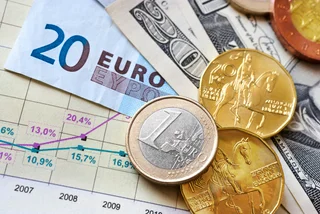Last year, Czech exports to the United States hit a record high. But a new transatlantic trade deal may reverse that momentum, and make life more expensive for people in Czechia.
A flat 15 percent U.S. tariff on most EU imports, announced Sunday by U.S. President Donald Trump and European Commission President Ursula von der Leyen, will apply to key Czech export categories including cars, semiconductors, and pharmaceuticals. The tariff follows earlier threats of 30 and even 50 percent duties.
PARTNER ARTICLE
For consumers in Czechia, the effects are already taking shape: here's how.
Cars, electronics hit hardest
U.S. tariffs will essentially raise production costs, and American electronics such as Apple products and PC components may become costlier for Czech buyers.
Czech exporters, particularly in the automotive and machinery sectors, face growing challenges in the U.S. market. According to the Czech Statistical Office, half of Czech exports to the U.S. last year – totaling CZK 133.4 billion – were in the category of machinery and transport equipment.
“This [automotive and machinery] is the most vulnerable part of our economy,” said Trinity Bank chief economist Lukáš Kovanda in late 2024. “The Czech economy is the most vulnerable among all EU economies with regards to tariffs, since it represents a small open economy.”
Everyday goods may cost more
Popular American imports such as snacks and fashion items are expected to see price hikes. Prague-based retailer The Candy Store told Czech Television after Trump's election win: “We are mainly worried about customs duties, both from the side of the U.S. and the EU. There is also a possibility of the Czech crown weakening against the dollar.”
Other goods likely to become more expensive include smartphones, laptops, gaming consoles, American beef, peanut butter, and whiskey. Imported U.S. car brands could also see price increases due to higher import costs.
Budget-friendly fashion from brands like Shein and Temu may no longer be as affordable, as rising transport costs and tighter customs controls drive up prices. Even IKEA furniture, while mostly sourced in Europe, could become more expensive due to global shipping disruptions tied to the tariffs.
How are analysts reacting?
Analysts and officials have offered mixed reactions to the new EU-US trade agreement. Czech Minister of Industry and Trade Lukáš Vlček called the deal a step toward “essential stability and predictability” for European exporters and said the 15 percent flat-rate tariff was “the maximum that can currently be achieved.”
However, he emphasized his personal preference for a customs-free union and added, “we will continue to do our utmost to help Czech exporters succeed abroad.” Kovanda agreed the deal benefits the Czech Republic’s export-heavy automotive sector but warned that “the new average effective tariff rate that EU goods will face in the US will still be significantly more than ten percentage points higher” than before Trump took office.
The future may be bleak
While the agreement brings stability, experts warn of broader effects. "We are already in a structural deficit of over CZK 200 billion per year, Kovanda told Czech media outlet iDnes in a recent interview. "It is obvious that savings will have to be made somewhere else," Kovanda added, hinting that tax will likely go up across the board.
Additional tariffs could also follow, leading to further price hikes on a range of American imports.
Even small increases can make a big difference to consumers who depend on affordable options, one economist explained. For Czech households, the outcome could be clear – higher prices across a wide range of goods, and tighter budgets ahead.












 Reading time: 3 minutes
Reading time: 3 minutes 





























